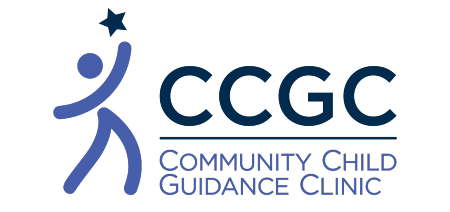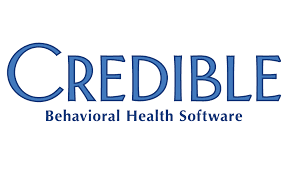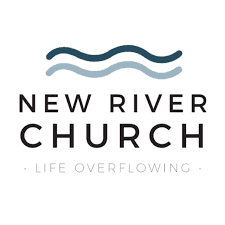Why Non-Profits Matter: A Look at the Resources that Surround Us
By Jamie Bellenoit, PhD, LMFT

What is a Nonprofit?
Before I talk about why nonprofit organizations matter so much, I think it’s important to define exactly what a nonprofit is. Nonprofits are agencies dedicated to furthering a particular social cause or advocating for a shared point of view. It’s important to add a quote I heard from a consultant recently that the term “nonprofit” is simply a tax status, not a business model. What I mean by that is that nonprofits still have to operate with an annual budget, and have to operate within the confines of that budget. We look very closely at our revenue over expenses each month, and make decisions based on real numbers, not always just based on advocacy or “saving the world”. We have to ensure that our finances are stable in order to further the mission and vision of the nonprofit agency. This isn’t always easy, given the work we do and the meager funding we usually have to do it with.
I’ve worked at nonprofit organizations my entire career.
I can’t say that this was so much of a conscious decision when I was 17 and beginning college, but I do think that the experiences I had at nonprofit organizations throughout college, graduate school and my postgraduate professional career ingrained in me a certain sense of urgency around the importance of giving back to the community and advocating for causes you believe in. And that’s exactly what we do. We serve the communities in which we live. Nonprofits have a long history of addressing issues not tackled by the government; problems that have become their causes: homelessness, poverty, hunger, climate change, education, animal cruelty, gender inequality, etc. We can be local or national in scope, from a neighborhood health clinic to the American Red Cross.
The National Council of Nonprofits reminds us that, “Nonprofits embody the best spirit and values of our nation. They help millions of individuals and families daily. They protect, feed, heal, shelter, educate, and nurture our bodies and spirits. Nonprofits also give shape to our boldest dreams, highest ideals, and noblest causes. They turn our beliefs into action – as promoters of democracy, champions of the common good, incubators of innovation, laboratories of leadership, protectors of taxpayers, responders in times of trouble, stimulators of the economy, and weavers of the community fabric.”
Nonprofits are an essential part of each community in Connecticut.
We advocate for the homeless, we fight for immigrants’ rights and provide asylum for those at risk of being deported. We help care for the sickest of the sick, both mentally and physically. We deliver meals to those who cannot leave their homes. We plant and tend community gardens to feed those who need fresh produce but cannot afford it. We raise animals and maintain them on farms for youth to visit and learn about our ecosystems. We are needed. Badly. People are counting on us. Sure it’s a lot of responsibility. But even more so, it’s a privilege.
We raise awareness about societal problems. We advocate as hard as we can, inspired by our clients to change the system. We organize vigils and press conferences, we write op-eds. We ensure that the story of each family, each client reverberates – that the larger point is made – and we call people to action.
We offer hope, and it comes in many forms. A warm meal, a listening ear, a patient special education teacher, a ride to synagogue, a cuddle for the premature newborn in the NICU, blood donations to those who need it most. That’s what nonprofit work is about.
A look at the impact that Nonprofits make.
To say that nonprofits play an important role in our society is something of an understatement, but this sentiment runs even deeper than you might think. Here are some of the most up to date statistics to consider, from the National Center for Charitable Statistics:
- Approximately 1.56 million nonprofits were registered with the Internal Revenue Service (IRS) in 2015, an increase of 10.4 percent from 2005.
- The nonprofit sector contributed an estimated $985.4 billion to the US economy in 2015, composing 5.4 percent of the country’s gross domestic product (GDP).
- Of the nonprofit organizations registered with the IRS, 501(c)(3) public charities accounted for just over three-quarters of revenue and expenses for the nonprofit sector as a whole ($1.98 trillion and $1.84 trillion, respectively), and just under two-thirds of the nonprofit sector’s total assets ($3.67 trillion).
- In 2016, total private giving from individuals, foundations, and businesses totaled $390.05 billion (Giving USA Foundation 2017), an increase of 1.4 percent from 2015 (after adjusting for inflation).
- According to Giving USA (2017), total charitable giving rose for the third consecutive year in 2016, making 2016 the largest single year for private charitable giving, even after adjusting for inflation.
- An estimated 25.2 percent of US adults volunteered in 2016, contributing an estimated 8.7 billion hours. This is a 2 percent increase from 2015. The value of these hours is approximately $187.4 billion.
So, not only are nonprofits playing an important role in the general betterment of society, but we’re actually a hugely important part of our economy at the same time. Even if you’re not directly affected by the charity or cause a nonprofit represents, you absolutely are in other ways. If nonprofit organizations were to suddenly disappear overnight, all of our lives would suddenly look very different. The nonprofit sector is where change is directed at our most daunting problems. In addressing issues ranging from school reform to health care access; economic development to cleaner environments; affordable housing to greater mobility; civic engagement to effective governance — and many more — nonprofits actively serve the global public good.
Those of us that work at non-profits truly experience working life in a different way.
Hands down my absolute favorite part of my job, and of my career as a whole, is being surrounded by passionate, dedicated people for whom the work feels like a calling. For many of us, there’s no question of what to do or where to work, because being at a nonprofit is like being part of a family.
Being married to someone who works for a Fortune 10 company, we often trade stories at night of how our workdays went. His usually involve lots of meetings, phone calls, webinars, and very technical work. He tells me about what special they were serving in the company cafeteria (that looks more like a restaurant, with more choices than The Cheesecake Factory!) that he could get for less than $5, because the company subsidizes it. He tells me about picking up his dry cleaning down the hall, going to the gym one floor down on his one-hour lunch break, and having his clothes cleaned and delivered back to his personal locker by the next morning.
We often look at each other and laugh, because we both know how unfathomable any of those stories would be working at a nonprofit. We can barely squeeze it in our budget to provide the occasional lunch to our employees. I can’t expense $100/day of meals when I travel for work like he can, I usually can’t even expense the travel itself!
All of this is not to complain. In fact, it’s just the opposite.
It’s to highlight just how meaningful working in a nonprofit organization is. Knowing full well that there’s plenty of for-profit corporations that offer perks like those I mentioned above, I still don’t blink an eye at the thought of staying here. Showing up to work and being surrounded by passionate, driven, dedicated, loyal, underpaid and overworked coworkers that have become my family is my only choice.
None of those perks could even come close to the perks I receive every day. Showing up to work and getting to watch a student who’s struggling with a lesson in school have the “light bulb” moment and smile from ear to ear when he gets it: that is my “perk”. Showing up to work and watching the way our clients interact with, smile at, and hug their staff is my perk. Hearing about a client who made a breakthrough in their treatment is my perk. Watching a new clinician discuss a difficult case and get feedback from her coworkers about what we might say or do, and watching the conversation go on for over an hour is my perk.
These people show up because we believe in the power of the nonprofit mission. We believe in hope and we deliver hope. All nonprofits do. It may be in very different forms, but the underlying sentiment is that we tackle the most difficult, head spinning, heart-wrenching issues that we face as human beings. And we succeed. That’s why nonprofits matter.











